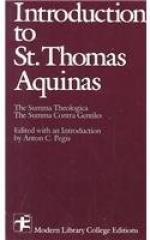
|
| Name: _________________________ | Period: ___________________ |
This quiz consists of 5 multiple choice and 5 short answer questions through Chapter 17, The End of Man Chapters XVIII, XIX, XX, XXV Chapter 18, XLVII, LI, LII, LIII.
Multiple Choice Questions
1. The matter of whether the essence of the soul is its power involves whether ____________________ soul are separate and distinct or not.
(a) The intellectual and spiritual.
(b) The concrete and abstract.
(c) The irrational and rational.
(d) The sensitive and the rational.
2. God is the leader and ____________ are led by Him.
(a) Saints.
(b) Disciples.
(c) Men.
(d) Angels.
3. According to Aquinas, God is the end of things as something to be obtained by each thing in what way?
(a) A few ways.
(b) One way.
(c) Its own way.
(d) God's way.
4. What location of truth does the author question?
(a) Whether man can be truthful.
(b) Whether truth resides only in the intellect.
(c) Whether there is truth in heaven.
(d) Whether truth resides in God.
5. The divine essence is compared with what?
(a) Prayer.
(b) Dark.
(c) Love.
(d) Light.
Short Answer Questions
1. Aquinas introduces the idea of one mind. Is every event of the mind the same mind in action?
2. Aquinas brings up the divergent views regarding what, saying that there are two lines of teaching?
3. What does Aquinas mean by truth that is immutable?
4. Aquinas then broaches the matter of what substances?
5. According to Aquinas, is God truth?
|
This section contains 240 words (approx. 1 page at 300 words per page) |

|




